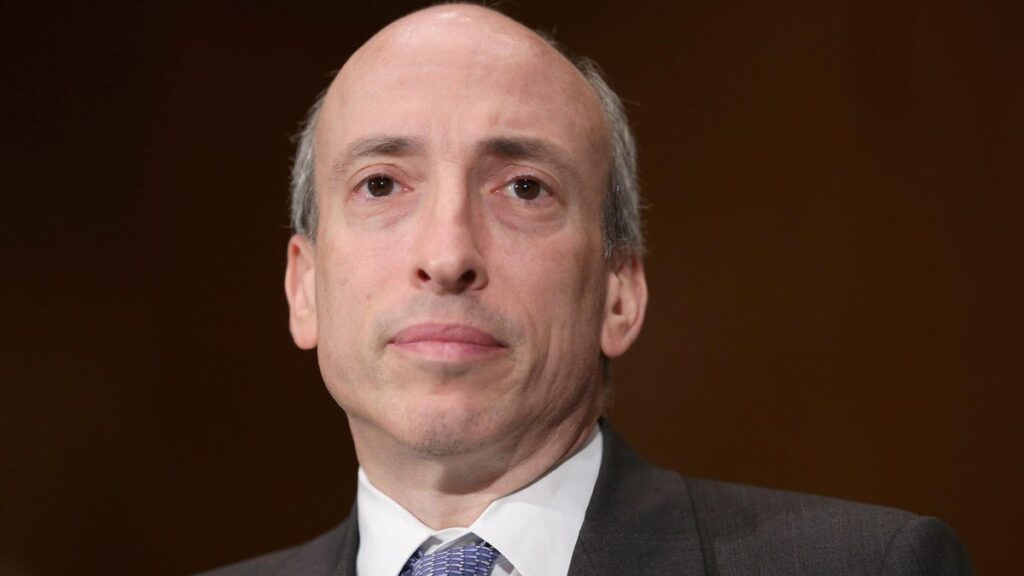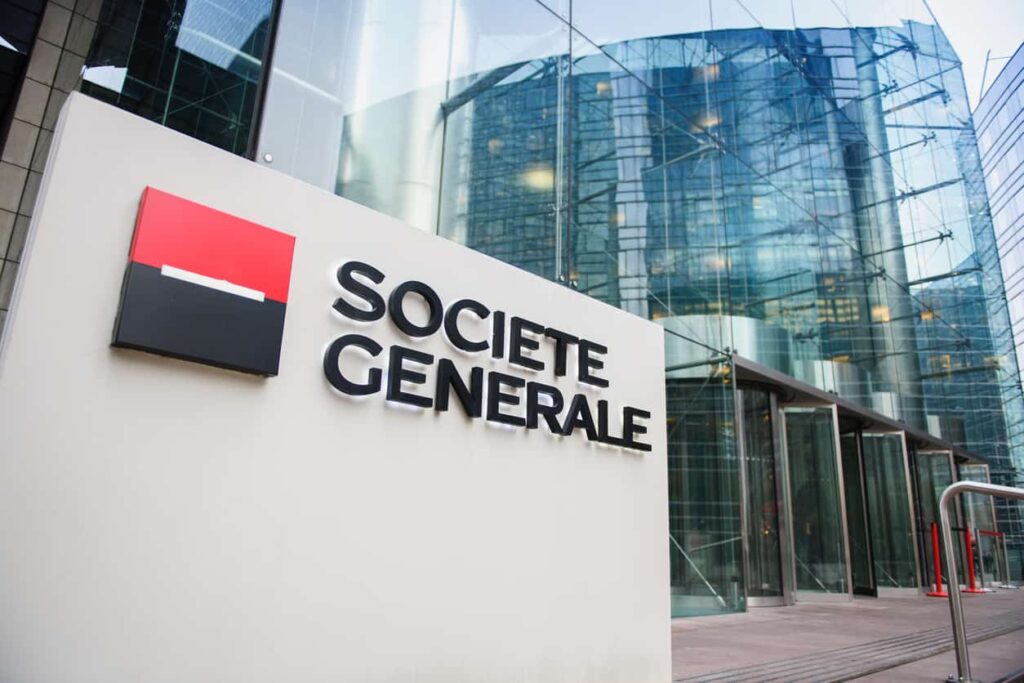The House Committee on Energy and Commerce in the United States has made a significant stride towards advancing blockchain technology with the unanimous passage of the Deploying American Blockchains Act of 2023 (H.R. 6572).
This crucial legislation, passed with a resounding 46-0 vote, seeks to harness the potential of blockchain technology by entrusting the U.S. Commerce Secretary, Gina Raimondo, with the task of promoting its deployment across the nation.
The primary objective of the 13-page bill is to enhance the competitiveness of the United States in the field of blockchain technology and distributed ledger technology.
It calls upon Secretary Raimondo to undertake necessary actions to foster the deployment, use, application, and competitiveness of blockchain technology.
This move has garnered support from Cody Carbone, the Policy Head for the Chamber of Digital Commerce, who expressed optimism that this legislation would safeguard America’s leadership in blockchain development.
Before receiving unanimous approval, Blockchain Association CEO Kristin Smith underscored the bill’s significance in bolstering the nation’s competitiveness in this evolving landscape.
The bill outlines various obligations for the Commerce Secretary, encompassing the development of best practices, policies, and recommendations for both the public and private sectors when engaging with blockchain technology.
READ MORE: Riot Blockchain’s Massive Miner Purchase Sets Stage for Bitcoin Halving 2024
Furthermore, the bill proposes the establishment of a “Blockchain Deployment Program” dedicated to supporting the widespread adoption of blockchain technology.
It envisions the creation of government advisory committees that comprise federal agency representatives, blockchain industry stakeholders, and experts, all working collectively to foster blockchain adoption.
In addition to promoting blockchain leadership, the legislation also focuses on improving coordination among federal agencies interested in utilizing blockchain technology.
Comprehensive studies will be conducted to assess the current utilization of blockchain within federal agencies and their readiness to embrace this innovative technology.
Although the pro-blockchain bill represents a significant step forward, it is just one of many legislative proposals related to cryptocurrency and blockchain technology.
The absence of a House Speaker in 2023 has impacted the progress of such bills.
While this bill is substantial, it may not have the far-reaching implications of other bills, such as the Financial Innovation and Technology for the 21st Century Act, which aims to address the classification of cryptocurrencies as commodities or securities and clarify regulatory jurisdictions.
Now, the Deploying American Blockchains Act will proceed to the House for a vote.
If approved, it must also pass in the Senate before undergoing final scrutiny and approval from Congress and the President, potentially paving the way for a new era of blockchain technology in the United States.
In the recent Republican Party presidential debate on November 6, United States presidential hopeful Vivek Ramaswamy took a strong stance against Securities and Exchange Commission (SEC) Chair Gary Gensler and other regulatory agencies, commonly referred to as the “three-letter agencies,” for their perceived failure to keep pace with the rapidly evolving world of cryptocurrency.
Ramaswamy didn’t mince words when he criticized Gensler for his inability to acknowledge before Congress that Ethereum’s native currency, Ether, should be categorized as a commodity.
He deemed this reluctance by regulators as “nothing short of embarrassing.”
This debate question came in the wake of Binance CEO Changpeng “CZ” Zhao’s recent guilty plea, which raised concerns about the ability of regulators to address fraudulent activities in the crypto space.
In response to the question about preventing fraud, Ramaswamy emphasized the urgent need for regulatory reform in the crypto industry.
He pointed out that fraudsters, criminals, and terrorists have exploited regulatory gaps for an extended period and stressed that current regulations must adapt to the evolving landscape.
READ MORE: Riot Blockchain’s Massive Miner Purchase Sets Stage for Bitcoin Halving 2024
Following Ramaswamy’s remarks, fellow pro-crypto candidate Ron DeSantis chimed in, expressing his strong opposition to the implementation of a central bank digital currency (CBDC).
DeSantis argued that a CBDC would lead to excessive government control, surveillance, and the elimination of cash and decentralized cryptocurrencies. He vowed to discard the idea of CBDCs on his first day as president.
Ramaswamy is among the few presidential candidates who have made cryptocurrency a central theme of their campaigns. He stands out as the sole Republican candidate who has unveiled a comprehensive crypto policy framework.
Meanwhile, former Democratic Party candidate Robert F. Kennedy Jr. has also made cryptocurrency a pivotal aspect of his campaign, even suggesting that he would support backing the U.S. dollar with Bitcoin if elected.
Beyond the presidential race, cryptocurrency has emerged as a contentious issue in the United States.
Democratic Senator Elizabeth Warren, as part of her senate reelection campaign, has declared a “war on crypto,” further underscoring the ongoing debate surrounding cryptocurrency regulation and its implications for the nation’s financial landscape.
A federal judge has officially accepted the guilty plea of Binance founder Changpeng “CZ” Zhao for money laundering, though the issue of whether he can depart from the United States prior to his sentencing in February remains unresolved.
On December 6, in a filing to the Seattle District Court, Judge Richard Jones confirmed his acceptance of Zhao’s guilty plea to one count of Bank Secrecy Act violations.
This plea had been submitted by the Binance founder on November 21, concurrent with his exchange’s massive $4.3 billion settlement with U.S. regulatory authorities.
As part of this settlement, Zhao stepped down from his role as CEO of Binance and agreed to pay a substantial $150 million fine to regulators.
In the court document, Judge Jones acknowledged, “This Court, having considered the Report and Recommendation of the United States Magistrate Judge, to which there has been no timely objection […] accepts the plea of guilty of the defendant.
The defendant is adjudged guilty of such offense.”
Zhao is scheduled to be sentenced on February 23, 2024, and faces a potential prison term of up to 18 months.
READ MORE: Bitcoin Futures Open Interest Soars to $5.2 Billion, Nearing All-Time High
Presently, he is out on a $175 million bond, which would have allowed him to return to his residence in the United Arab Emirates.
However, federal prosecutors have raised objections against allowing Zhao to leave the U.S., expressing concerns that they would be unable to ensure his return.
The UAE lacks an extradition treaty with the United States, and Zhao, with his substantial wealth, could potentially remain in the UAE indefinitely.
Prosecutors argued, “He has three young children and a partner in the UAE; once in the UAE and faced with the prospect of traveling back to the United States to face up to 18 months in prison, he may elect to instead simply stay in the UAE with his family.”
Zhao has vehemently opposed the travel restrictions, asserting that he presents no risk of fleeing justice.
He pointed out that he had already demonstrated his willingness to take responsibility for his actions by voluntarily traveling from the UAE to the United States.
On November 27, Judge Jones issued an order preventing Zhao from traveling to the UAE until a court ruling on the U.S. government’s motion for review is made.
The final decision on whether Zhao can leave the United States before his sentencing remains uncertain.
Bitcoin has defied predictions and gained almost 170% in value since the European Central Bank (ECB) sounded the alarm about its impending “irrelevance.”
On November 30, 2022, when the ECB published a blog post declaring Bitcoin’s demise, the cryptocurrency was trading at just $16,400.
The post argued that even these levels were just a pitstop on the way to further price declines.
According to the ECB’s post, Bitcoin’s value had peaked at $69,000 in November 2021 before plummeting to $17,000 by mid-June 2022.
The post suggested that Bitcoin’s apparent stabilization was merely an artificially induced last gasp before its inevitable descent into irrelevance.
Contrary to the ECB’s predictions, Bitcoin continued to thrive. After briefly revisiting the $16,400 mark in mid-December, it made a swift comeback, surging by 70% in the first quarter of 2023 alone.
A year after the ECB’s premature obituary, Bitcoin was trading at its highest since April 2022, reaching $43,800, marking a 166% increase from the time the ECB issued its warning.
READ MORE: CGMD Miner: Leading Cloud Mining Player in Cryptocurrency
Crypto enthusiasts and experts expressed amusement at the ECB’s erroneous assessment.
Philip Swift, creator of the statistics platform Look Into Bitcoin, found satisfaction in the situation.
Alex Thorn, head of firmwide research at crypto education resource Galaxy, questioned the ECB’s credibility and wondered about other areas where the bank might be wrong.
The ECB has a reputation as a Bitcoin skeptic, with its views on the cryptocurrency market often causing embarrassment. ECB Chief Christine Lagarde, in a recent statement, revealed her low opinion of cryptocurrencies and noted that her own son had disregarded her advice on crypto investments and suffered losses as a result.
Despite its skepticism toward Bitcoin, the ECB is actively exploring the possibility of launching a central bank digital currency (CBDC).
However, this initiative has faced scrutiny, especially after Lagarde admitted that a CBDC could offer enhanced transaction control, sparking concerns about privacy and surveillance within the financial system.
Bitcoin’s remarkable resilience serves as a reminder of the unpredictable nature of the cryptocurrency market and the challenges faced by traditional financial institutions in understanding and adapting to it.
Russia’s pioneering cross-border payment platform, Exved, has officially announced its launch, ushering in a new era for local legal entities to conduct international settlements using cryptocurrencies.
Describing itself as a “digital counterparty search system,” Exved unveiled its groundbreaking business-to-business solution on December 7th.
This development empowers Russian importers and exporters to streamline foreign exchange operations and international economic activities.
The Exved platform offers the capability to execute cross-border transactions employing the Tether stablecoin, alongside the offshore ruble and the United States dollar, as confirmed in their announcement.
Crucially, Exved places a strong emphasis on compliance with Anti-Money Laundering and Counter-Terrorist Financing measures, exclusively catering to legal entities.
Their overarching mission is to enable Russian legal entities to engage in cross-border payments sans intermediaries, all while benefiting from the most competitive market rates.
READ MORE: ORDI Token Soars Past $1 Billion Market Cap, Setting New Milestone for BRC-20 Tokens
Exved’s launch has enjoyed significant support from key industry partners, including InDeFi Bank, notable for initiating the decentralized crypto ruble project in 2022.
Sergey Mendeleev, the Co-founder and CEO of InDeFi Smart Bank, highlighted that Exved’s internal mechanics have undergone rigorous testing and received approval from both the Bank of Russia and the Federal Financial Monitoring Service of the Russian Federation.
Mendeleev expressed that Exved, primarily a private initiative, aims to educate individuals about the possibility of making payments at rates as low as 2-3% rather than the typical 6-7%.
It also offers specific mechanisms for implementing payment requests, fostering financial efficiency and transparency in cross-border transactions.
This milestone aligns with the Russian central bank and the Ministry of Finance’s historic agreement in September 2022, which permitted cross-border settlements using cryptocurrencies.
As the crypto landscape continues to evolve, Exved’s innovative platform promises to play a pivotal role in reshaping the way Russian businesses engage in international trade and payments.
In summary, Exved’s launch marks a significant step forward in the world of cross-border payments, opening up exciting possibilities for Russian legal entities to engage in cryptocurrency-based international settlements with unparalleled ease and cost-efficiency.
PayPal’s recent launch of its native stablecoin, PayPal USD (PYUSD), has stirred significant debate within the cryptocurrency industry regarding its potential impact on payments and broader crypto adoption.
While this move appears to be a significant step toward integrating cryptocurrencies into traditional finance, some industry experts advise exercising caution due to the potential challenges and limitations that could impede widespread adoption.
PYUSD is designed to serve as a bridge between fiat and digital currencies, catering to consumers, merchants, and developers.
PayPal CEO Dan Schulman emphasized the necessity for a stable digital-fiat conduit to facilitate various transactions, including payments, fund transfers between PayPal and compatible external wallets, and crypto conversions.
The coin’s primary goal is to reduce payment frictions in virtual environments, expedite value transfers, and offer a safer alternative to the volatile nature of most cryptocurrencies.
As an ERC-20 token on the Ethereum blockchain, PYUSD is compatible with prevalent exchanges, wallets, and Web3 applications, with plans to expand its availability to Venmo users.
However, achieving widespread adoption across PayPal’s vast user base in 200 markets remains uncertain.
PYUSD is subject to regulatory oversight by the New York State Department of Financial Services, with Paxos set to provide monthly reserve reports and third-party attestations of reserve assets’ values, enhancing transparency.
Beyond introducing PYUSD, PayPal continues its efforts to educate consumers and merchants about digital currencies, complementing its existing services that allow customers to transact in select cryptocurrencies.
The introduction of PYUSD signals a significant milestone, with PayPal becoming the largest payments company to embrace blockchain technology in a way that sets new standards and utility levels for stablecoins.
READ MORE: Phoenix Group Makes Historic Debut as First Crypto Mining Firm on Abu Dhabi Securities Exchange
This move sends a clear message that stablecoins are entering the mainstream, extending the benefits of blockchain technology to everyday transactions.
Some industry experts are enticed by the potential for PayPal’s stablecoin to be integrated into multiple systems, leading to the introduction of more use cases for various digital assets and cryptocurrencies.
However, they acknowledge the associated risks and the need for increased regulation as stablecoins gain prominence.
PayPal’s entry into the stablecoin space could serve as a catalyst for other fintech firms to follow suit, setting a precedent for proactive corporate involvement in Web3 innovation.
However, it also brings the potential for greater regulatory scrutiny and compliance requirements.
In the context of global financial inclusion, decentralized finance (DeFi) holds promise for unbanked and underbanked populations, providing access to financial services.
While DeFi faces regulatory challenges, it could potentially benefit from PayPal’s stablecoin by leveraging PayPal’s familiarity to facilitate the transition from traditional finance to DeFi.
As of now, PYUSD remains centralized and has not ventured into the DeFi space. Its current ranking on CoinMarketCap is 242, indicating that it has room for growth and adoption.
The crypto community continues to assess both the positive and negative aspects of PayPal’s stablecoin, recognizing its potential to bridge financial systems while also acknowledging concerns about regulatory oversight and adoption challenges.
The future impact of PYUSD on the financial ecosystem remains uncertain, and further developments are awaited.
ARK Invest, a prominent player in the race to launch a Bitcoin exchange-traded fund (ETF) in 2024, is making substantial gains from its substantial holding of Coinbase stock.
On December 5th, ARK unloaded a significant portion of its Coinbase shares, totaling 237,572, across its three funds, as per a trade notification reported by Cointelegraph.
This move coincided with Coinbase’s stock closing at $140 per share, resulting in proceeds of at least $33 million.
The lion’s share of the Coinbase shares, precisely 201,711, were divested from the ARK Innovation ETF (ARKK).
The ARK Fintech Innovation ETF (ARKF) and the ARK Next Generation Internet ETF (ARKW) also participated in the sale, disposing of 28,535 and 7,326 shares, respectively.
Coinbase, the cryptocurrency exchange, has witnessed its stock reach new annual highs, riding the bullish wave of the crypto market, with a remarkable 280% year-to-date surge, according to TradingView data.
This rally gained further momentum following the legal issues faced by rival exchange Binance and its former CEO Changpeng Zhao, who pleaded guilty to money laundering and sanctions violations in the United States in November.
On December 5th, Coinbase’s stock reached an all-time high of over $147.4, a level not seen since April 2022.
READ MORE: Thirdweb Identifies Critical Security Vulnerability in Web3 Smart Contracts
Over the past 30 days, the stock has gained nearly 70%, according to TradingView.
ARK’s recent sale of Coinbase shares ranks as one of its most substantial daily sales in 2023, trailing only behind the massive 478,356 shares sold on July 14 and the 248,838 shares sold on July 17 when Coinbase was trading at approximately $105 per share.
In addition to its aggressive Coinbase selling, ARK has also divested 168,127 shares of Grayscale’s Bitcoin Trust (GBTC), which, at the closing price of $35, yielded $5.9 million, according to TradingView.
This selling of GBTC shares began on October 23, 2023, amid Bitcoin’s climb toward $34,000.
Despite the recent reduction in Coinbase holdings, ARK still retains a significant number of shares in the exchange.
Coinbase constitutes more than 13% of the net assets of the ARKF ETF, with a value of nearly $135 million as of December 5th.
Additionally, Coinbase accounts for 11.72% and 11.64% of the ARKW ETF and the ARKK ETF, respectively, making it the largest asset in both portfolios.
While ARK has been shedding Coinbase shares, it has concurrently been actively acquiring shares in other crypto-related companies, including Robinhood.
Moreover, the firm has persisted in purchasing shares of SoFi Technologies despite the announcement of the forthcoming termination of its crypto trading services.
In a groundbreaking development, a never-before-heard studio recording featuring a young Michael Jackson has emerged from the shadows after being concealed for over half a century.
This historical revelation is set to captivate music enthusiasts on December 7th, as it is unleashed in the form of a “digital vinyl” via a blockchain-based platform.
The track, dubbed “Big Boy (One-Derful Version),” will be digitally unveiled through the innovative blockchain music platform, Anotherblock.
Listeners will have the unique opportunity to access this piece of musical history, accompanied by images of the original master tape and song components.
This exclusive release will be available for a limited four-day window, as both an open edition and a limited edition collectible.
Harking back to July 13, 1967, this recording transports us to the moment when an eight-year-old Michael Jackson, joined by his brothers, embarked on their maiden studio session at One-Derful in Chicago.
The release of this long-lost treasure is the result of a collaborative effort between Recordpool, the custodian of this rare recording, and the Swedish blockchain-based music and royalty marketplace, Anotherblock.
READ MORE: Phoenix Group Makes Historic Debut as First Crypto Mining Firm on Abu Dhabi Securities Exchange
Anotherblock has previously collaborated with renowned artists such as Rihanna, The Weeknd, and Justin Bieber.
Michel Traore, the CEO and co-founder of the company, emphasized the significance of this release by stating that presenting it as a “digital vinyl on-chain” enables the creation of narratives and communities around the song, elevating it beyond mere commodity status.
Traore further added, “Some songs, and this one in particular, deserve a special home where they won’t disappear in the sea of hundreds of thousands of tracks released every day. This new format gives us a chance to craft more stories around the music.”
This release signifies a revolution in the realm of “digital vinyl,” prompting excitement within the digital ownership landscape of the music industry.
Katherine Jackson, Michael’s mother, echoed this sentiment and expressed her enthusiasm, stating that the “recordings of our musical heritage find a new rhythm for the digital age.
It is a testament that the Jacksons’ story, just like our music, remains timeless.”
The emergence of this treasured recording not only delights fans but also paves the way for a new era in music appreciation and ownership.
Société Générale, France’s third-largest bank, has taken a significant step into the world of stablecoins by introducing its native euro-pegged stablecoin, marking a notable entry for a European banking giant into this emerging market.
The stablecoin, named EUR CoinVertible (EURCV), is set to make its debut on Bitstamp, a Luxembourg-based cryptocurrency exchange, as reported by the Financial Times.
What sets EURCV apart is its full backing by the euro, providing bank customers with a secure means to engage in the digital asset arena.
This stablecoin will cater to a wide range of customers and can be used for trading purposes.
Jean-Marc Stenger, CEO of Société Générale Forge, emphasized the bank’s role in the ever-evolving cryptocurrency space and underscored the need for a stablecoin denominated in euros.
While the stablecoin market has primarily been dominated by USD-pegged stablecoins like Tether and Circle’s USD Coin, Société Générale’s move is seen as more than just a novelty by Stenger.
Stenger pointed out that EURCV has been strategically developed to facilitate the settlement of trades involving digital bonds, funds, and various assets.
READ MORE: Thirdweb Identifies Critical Security Vulnerability in Web3 Smart Contracts
He also highlighted that the versatility of this stablecoin extends beyond Société Générale’s platform, making it accessible to a broader spectrum of financial service providers.
One notable application of EURCV is its use by Axa Investment Managers for investing in the bank’s digital green bond. This bond has a value of 10 million euros (approximately $11 million) and a three-year maturity period.
Société Générale’s foray into the euro-pegged stablecoin market holds significant implications for the European financial landscape, especially with the impending arrival of the European Union’s Markets in Crypto-Assets Regulation in 2024.
It’s important to note that Société Générale has not been a newcomer to the cryptocurrency domain; the bank has actively offered cryptocurrency exposure to its customer base for several years.
In fact, back in July, Société Générale’s crypto subsidiary, Forge, achieved a milestone by becoming the first company to secure the highest access license for providing cryptocurrency services in France.
In conclusion, the introduction of EUR CoinVertible by Société Générale signifies a noteworthy development in the stablecoin market, particularly within the European banking sector.
This move aligns with the broader trend of traditional financial institutions embracing digital assets and blockchain technology, demonstrating the ongoing transformation of the financial industry.
The ORDI token, built on the Bitcoin Ordinals protocol, has achieved a remarkable milestone by becoming the first BRC-20 token to surpass a market capitalization of $1 billion.
This achievement comes on the heels of its astounding triple-digit gains in both monthly and weekly percentages.
As of December 5th, ORDI reached an all-time high, trading at over $65, marking an impressive 850% surge from its November 5th value of approximately $6.80, as reported by CoinGecko.
Over the course of the last seven days alone, ORDI has witnessed a remarkable 216% increase in value.
This sudden and significant uptick in the price of ORDI propelled it into the exclusive club of BRC-20 tokens with a $1 billion market capitalization.
Presently, at the time of this report, its market capitalization stands at $1.3 billion, although it has slightly retreated from its peak and is currently trading below $61.
Even at this level, it represents an extraordinary 2,000% increase from its previous all-time low of $2.86 on September 11th.
READ MORE: Ho-ho-ho! BetFury Holds $800 000 Xmas Event!
Bitcoin Ordinals, introduced by Casey Rodarmor in January, introduced a novel capability to the Bitcoin blockchain: the ability to inscribe content, including nonfungible tokens (NFTs) and entirely new tokens utilizing the BRC-20 token standard.
The concept of Ordinals-inscribed assets rapidly gained traction within the broader blockchain community.
After a brief lull in inscription activity in October, Binance’s decision to list ORDI on November 7th reignited enthusiasm for these assets.
Data from Dune Analytics reveals that since the protocol’s inception, more than 48 million Ordinals assets have been inscribed, resulting in over $146.9 million in fees paid to the Bitcoin network.
Notably, on November 20th, transaction fees on the Bitcoin network surpassed those of Ethereum, primarily due to a rush to inscribe new NFTs and BRC-20 tokens.
Furthermore, on November 17th, the Ordinals-based project Taproot Wizards announced a successful $7.5 million seed round, underlining the growing interest and investment in the Bitcoin Ordinals ecosystem.
The remarkable rise of ORDI underscores the potential of innovative blockchain protocols to disrupt and reshape the digital asset landscape.













